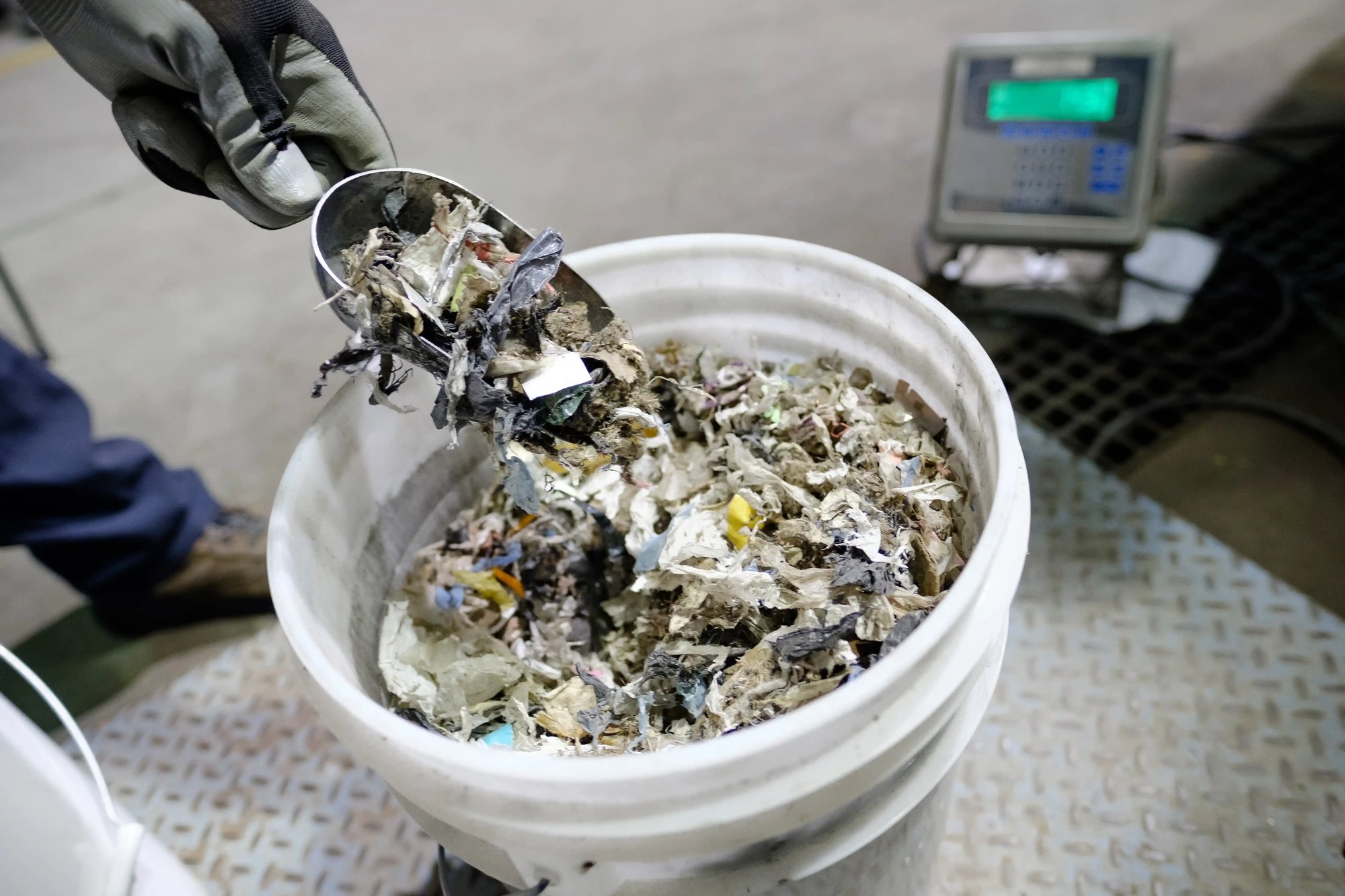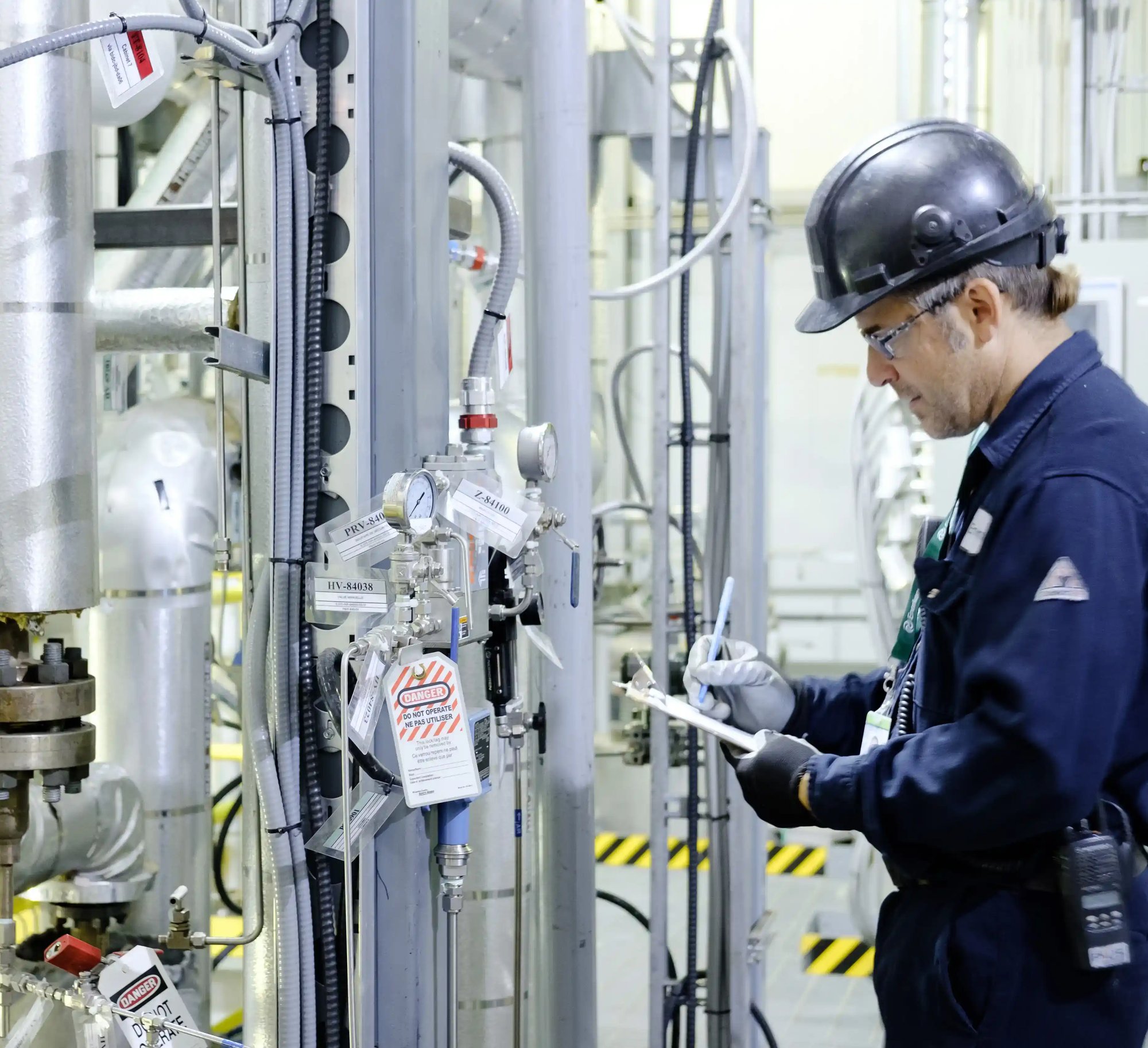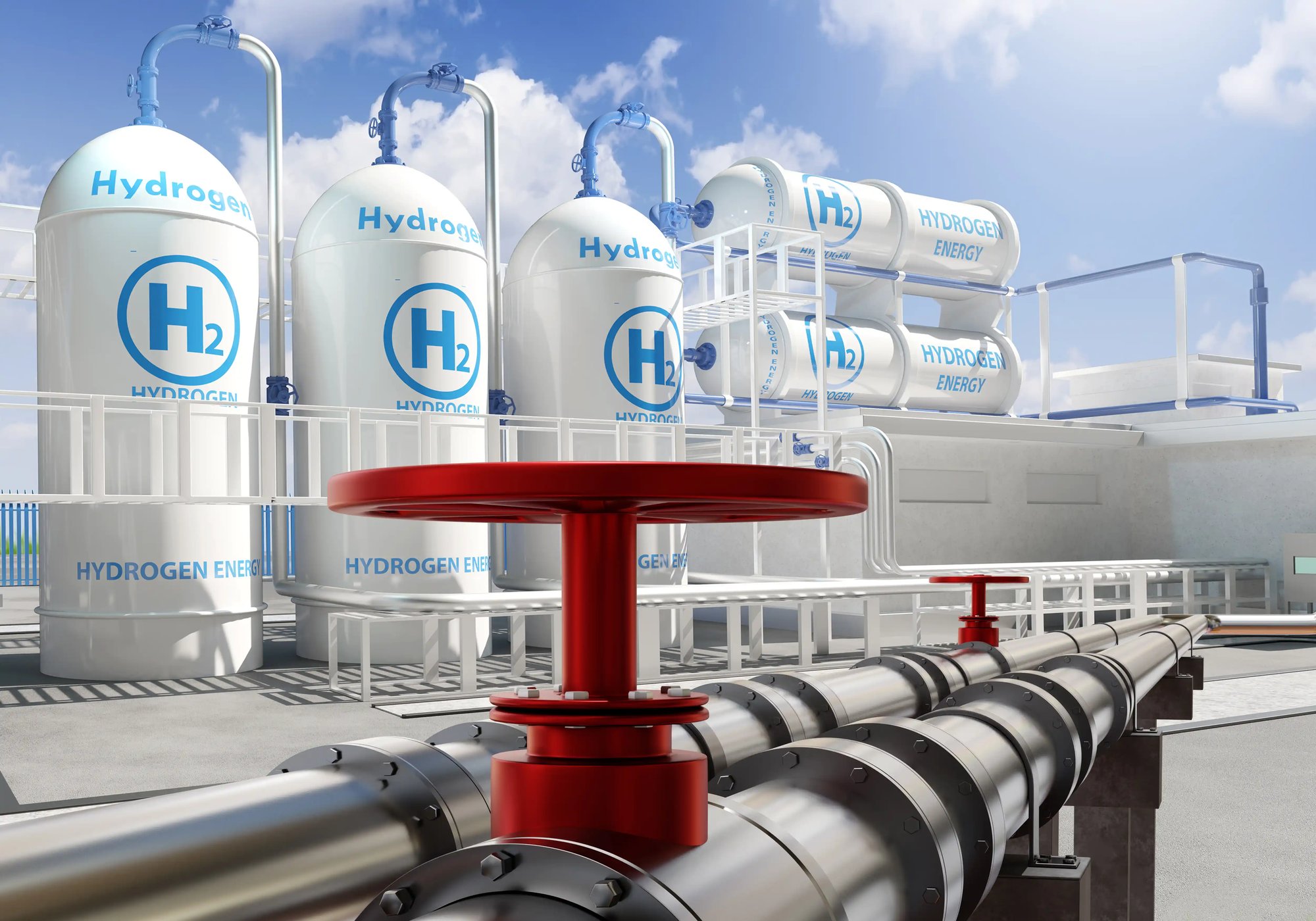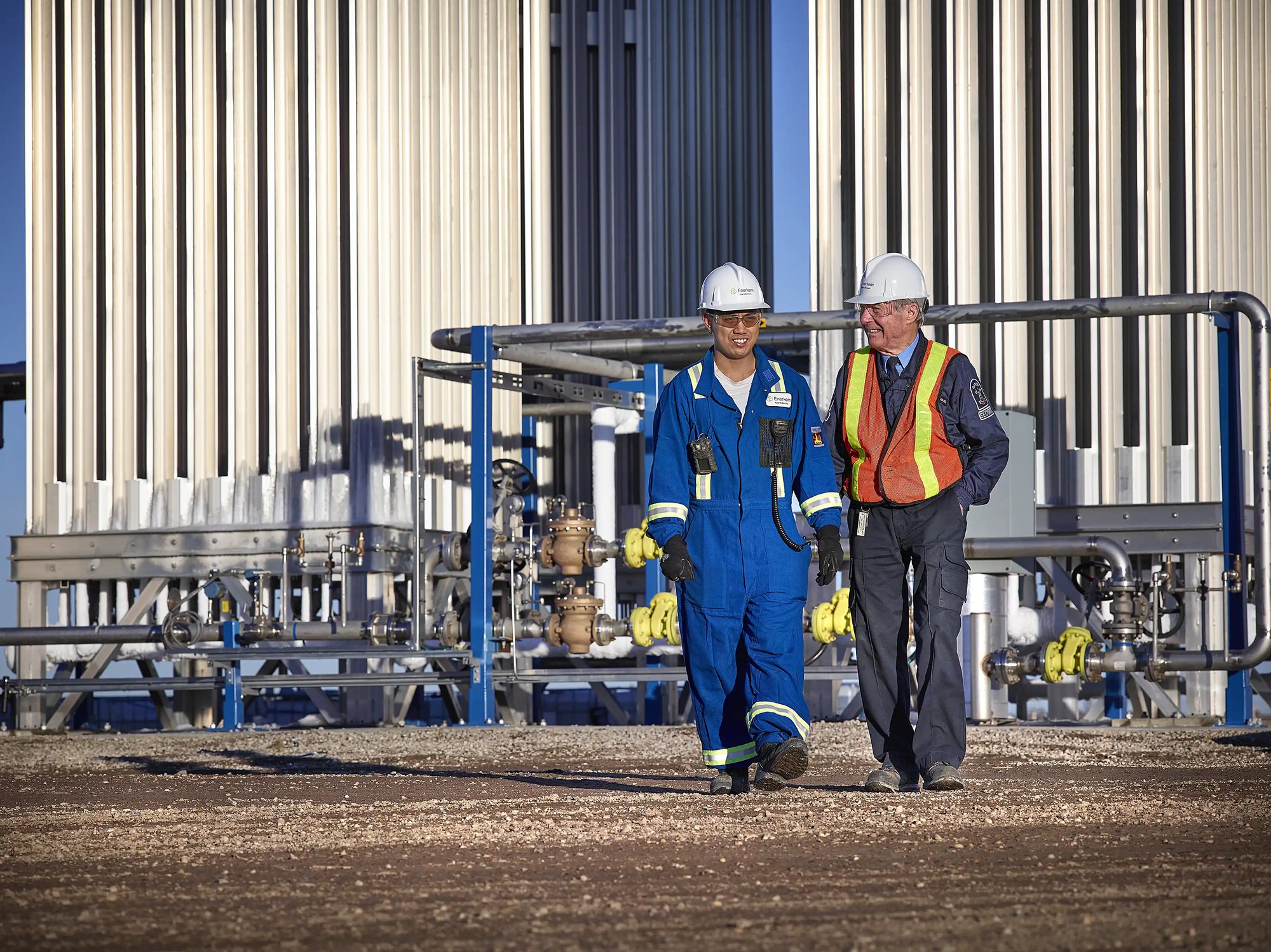
Our Technology:
Proven, Scalable and Sustainable
Producing sustainable fuels and chemicals from waste and residues
-

Feedstock Preparation
Enerkem technology utilizes waste and biomass residues as its feedstock, primarily sourced from municipal, commercial and industrial origins. This waste undergoes initial sorting to eliminate recyclable and inert components, followed by shredding and drying for further processing.
-
.webp?width=2000&name=AERF_2012-06-01_Interior%20(8).webp)
Gasification
Shredded waste material is fed to a proprietary bubbling fluidized bed gasification vessel. In this unit, it reacts with steam and oxygen to break down molecules and produce a gas mixture called syngas.
Syngas is then sent to another vessel, the reformer, to further convert the molecules into desirable components. The resulting syngas is rich in hydrogen and carbon monoxide, which are key building block molecules used in modern chemical processes.
-

Syngas Cleaning and Conditioning
Contaminants contained in waste feedstocks need to be removed to achieve higher yields. Our exclusive syngas cleaning and conditioning procedure empowers us to precisely regulate the purity and composition of the syngas, to tailor our production to the desired product.
During this stage, we have the capability to capture carbon dioxide (CO2), a crucial step in our commitment to carbon capture and storage (CCS) technologies. -

Synthesis and Product Purification
Our purified syngas can be directly used for the production of circular chemicals and fuels.
Preferably, we further transform it into methanol and/or ethanol. These building blocks are better suited to create a variety of end-products that meet the needs of hard-to-abate sectors.
In our proprietary synthesis step, hydrogen is added to syngas to produce a balanced mixture that is then compressed and fed to the reactor. Hydrogen, carbon monoxide and carbon dioxide combine in different ratios at the surface of the catalyst to produce crude methanol. This liquid is then purified to meet IMPCA specifications, or can be further converted into chemical or fuel-grade ethanol.
-

Conversion to End Products
Enerkem tailors its end products based on the plant in question, employing third-party technologies to convert our building blocks.

Efficient hydrogen carrier
Adding hydrogen as a process input is a safe and reliable way to store and carry hydrogen to hard-to-abate sectors, while doubling carbon recycling from waste.

Integrating CCS technologies
Carbon Capture and Storage (CCS) technologies allow us to produce carbon negative fuel and eFuel.
Connecting our technology to existing add-ons
Our syngas, methanol and ethanol core platforms are building blocks for key strategic molecules that fit your needs, markets and opportunities.
Syngas
- RNG
- Ethanol
- Sustainable Aviation Fuel (SAF)
- BioDiesel
- Ethylene
- Butadiene
Methanol
- Marine Fuel
- Sustainable Aviation Fuel (SAF)
- DME
- BioDiesel
Chemicals
- Ethylene
- Propylene
Ethanol
- Ethanol Fuel
- Sustainable Aviation Fuel (SAF)
- BioDiesel
Chemicals
- Ethylene
- Butadiene


